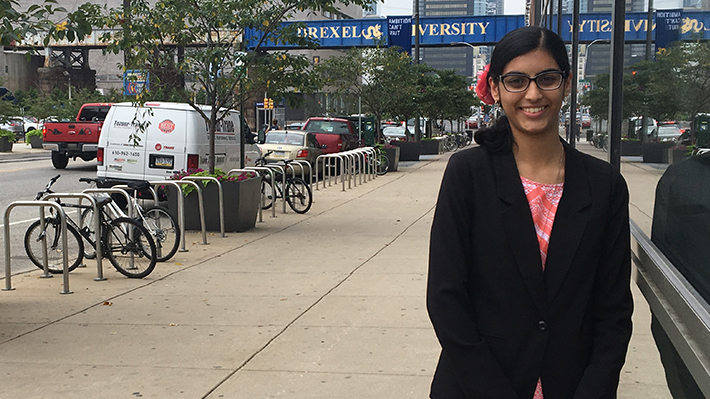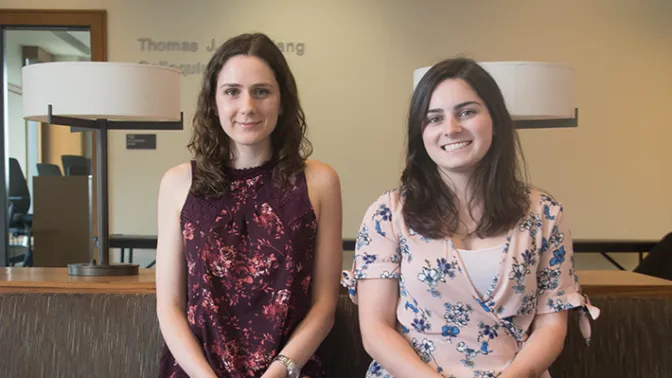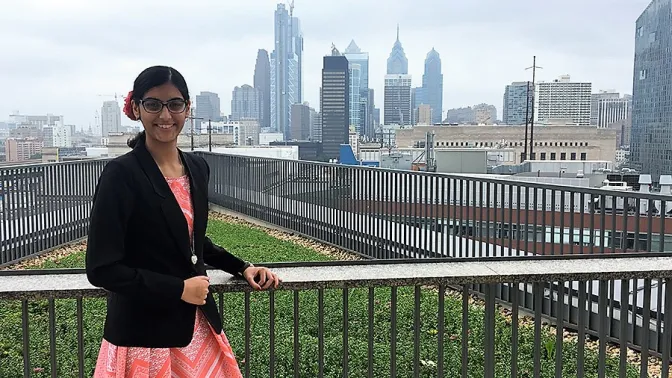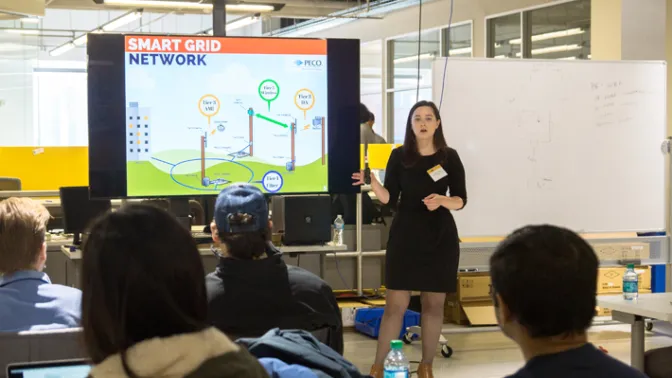
Protect Your Pacemaker: New Research Looks at Securing Medical IoT Technology
Last fall, LeBow junior Sarah Malik was on co-op at Comcast NBCUniversal, working on the company’s Business Data and Intelligence Team. During her lunch breaks and on weekends, she pored over scientific literature and medical device information for a research project.
A year later, all that hard work and dedication has paid off with the publication of her first academic paper.
Malik co-authored “Protecting the Internet of medical things: A situational crime-prevention approach” with Murugan Anandarajan, Professor of MIS and Chair of the Management and Decision Sciences & MIS departments, in the journal Cogent Medicine. She has collaborated with Anandarajan on research over the past two years.
“It’s an honor to work with him,” she says. “He’s very knowledgeable in his subject area and always thinks about how research can be applied.”
This paper looks at an emerging field of technology – medical devices that use Internet of Things (IoT) technology – and by surveying the devices currently on the market and looking at potential risks from a crime-prevention standpoint, it provides new perspectives on this technology’s use – and misuse.
Malik, a business and engineering major, has enjoyed connecting IoT technology to different industries. Healthcare and medicine was a new area for her, though, and her research led her to dive into a wide range of topics: product categories, FDA regulations and use-cases from other related fields.
One product category - implantable pacemakers and cardiac defibrillators - receives additional study through the lens of crime-prevention theory, with Malik and Anandarajan looking at existing regulations and vulnerabilities and recommending potential security methods.
“It was kind of a futuristic project, and she worked really hard and took advice really well,” Anandarajan says. Because this research deals with cutting-edge technology and a less thoroughly-studied field, he opted to publish in an open-access journal. “With this kind of research, you just want it out there,” he says, rather than waiting for an extended review process and a longer period from submission to publication.
Malik, whose initial exposure to academic research came through the Pennoni Honors College’s STAR Scholars program following her first year at Drexel, is also working on a research project at LeBow with the Dean’s Student Advisory Board about students’ perception of the University. Outside of LeBow, she conducts research with Antonios Kontsos and the Theoretical and Applied Mechanics Group in the College of Engineering. She’s currently balancing these projects with a second co-op at Comcast NBCUniversal HQ – this time in the Data Solutions team.
“I really enjoyed the project,” she says. “It really tested me and made me think about how I could build on what’s been established.”
Anandarajan and Malik’s paper, “Protecting the Internet of medical things: A situational crime-prevention approach” is available online here.


